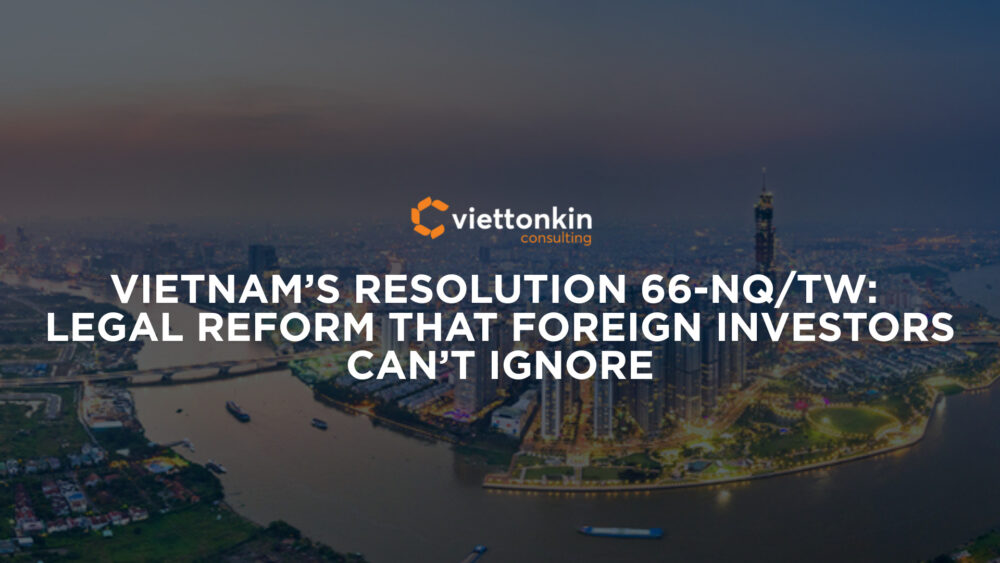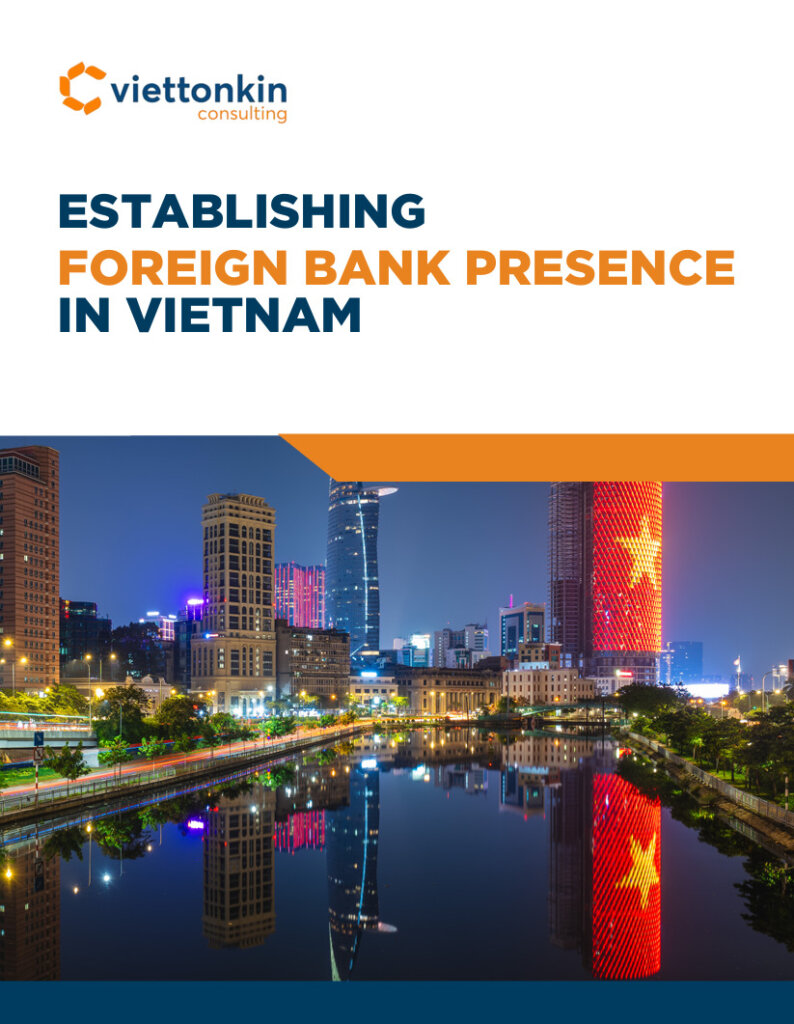Vietnam's food trade industry is one of the most dynamic sectors in the country. Fueled by an expanding middle class, rising disposable incomes, and shifting consumer preferences, the increasing demand for high-quality food products is undeniable. From bustling markets in Ho Chi Minh City to modern supermarkets in other major cities, the opportunity for both […]
Vietnam is entering a new era of legal modernization. With the issuance of Resolution 66-NQ/TW by the Politburo on April 30, 2025, the country has laid out an ambitious roadmap to transform its legal system into one of the most transparent, efficient, and investor-friendly in Southeast Asia. For foreign direct investors (FDIs), this resolution signals a significant shift toward a more predictable and innovation-driven business environment.
A Vision for 2045: Legal Certainty in a High-Income Vietnam
Resolution 66 sets two major milestones:
- By 2030: Vietnam aims to establish a synchronous, transparent, and enforceable legal system, removing regulatory bottlenecks and aligning laws with the three-tier government model.
- By 2045: The country envisions a modern legal framework that meets international standards, supporting its goal of becoming a high-income, developed nation.
This long-term vision is not just aspirational—it is backed by concrete reforms that will directly impact how foreign businesses operate in Vietnam.
Key Reforms That Matter to Investors
1. A Transparent, Low-Compliance Legal Environment
Resolution 66 emphasizes the development of a socialist-oriented market economy with a legal system that is:
- Open and transparent
- Safe and predictable
- Low in compliance costs
This means fewer bureaucratic hurdles, simplified administrative procedures, and a stronger legal foundation for property rights, freedom of contract, and equal treatment across all economic sectors.
2. Empowering the Private Sector
The resolution recognizes the private economy as the primary engine of growth. It calls for:
- Legal mechanisms to ensure equal access to capital, land, and talent
- Support for SMEs and startups
- Promotion of regional and global private economic groups
For FDIs, this translates into a more level playing field and greater opportunities to partner with or invest in Vietnamese private enterprises.
3. Legal Frameworks for Emerging Sectors
Vietnam is preparing for the future by building legal corridors for:
- Artificial Intelligence
- Digital and green transformation
- Data resource exploitation
- Crypto assets
These frameworks will enable FDIs to explore new industries and innovative business models with legal clarity and protection.
4. International Integration and Legal Harmonization
Resolution 66 calls for improved international legal cooperation and alignment with global standards. This includes:
- Enhanced legal predictability for cross-border transactions
- Stronger enforcement of international agreements
- Better dispute resolution mechanisms
This is especially relevant for investors seeking long-term stability and legal recourse in Vietnam.
Institutional and Technological Overhaul
To ensure effective implementation, the resolution introduces several institutional innovations:
- A Central Steering Committee on Legal Reform, led by the General Secretary
- A special financial mechanism to fund law-making and enforcement
- Digital transformation of legal processes, including the use of AI and big data
These measures aim to streamline governance, reduce corruption, and accelerate policy responsiveness—all of which are critical for investor confidence.
Timelines and What to Expect
| Year | Milestone |
| 2025 | Eliminate major legal bottlenecks |
| 2027 | Complete legal updates for the 3-level government model |
| 2028 | Finalize legal system for investment and business |
| 2030 | Achieve a transparent, enforceable legal system |
| 2045 | Reach international legal standards in a high-income Vietnam |
Opportunities for Foreign Investors
With Resolution 66, Vietnam is not just reforming laws—it is redefining its investment climate. Key opportunities include:
- Early entry into emerging sectors with supportive legal frameworks
- Strategic partnerships with Vietnamese private firms
- Participation in legal and institutional modernization projects
- Increased protection for intellectual property and digital assets
Conclusion: A Legal Leap Forward
Resolution 66-NQ/TW is a bold declaration of Vietnam’s intent to become a top-tier investment destination in ASEAN. For foreign investors, it offers a rare combination of legal certainty, market dynamism, and forward-looking governance.
At Viettonkin Consulting, we are closely monitoring the implementation of these reforms and are ready to help you navigate the evolving legal landscape. Whether you're entering Vietnam for the first time or expanding your footprint, now is the time to align your strategy with Vietnam’s legal transformation.
You may also like: Vietnam’s Legislative Roadmap for 2025: What Resolution 59-NQ/TW Means for Foreign Investors












